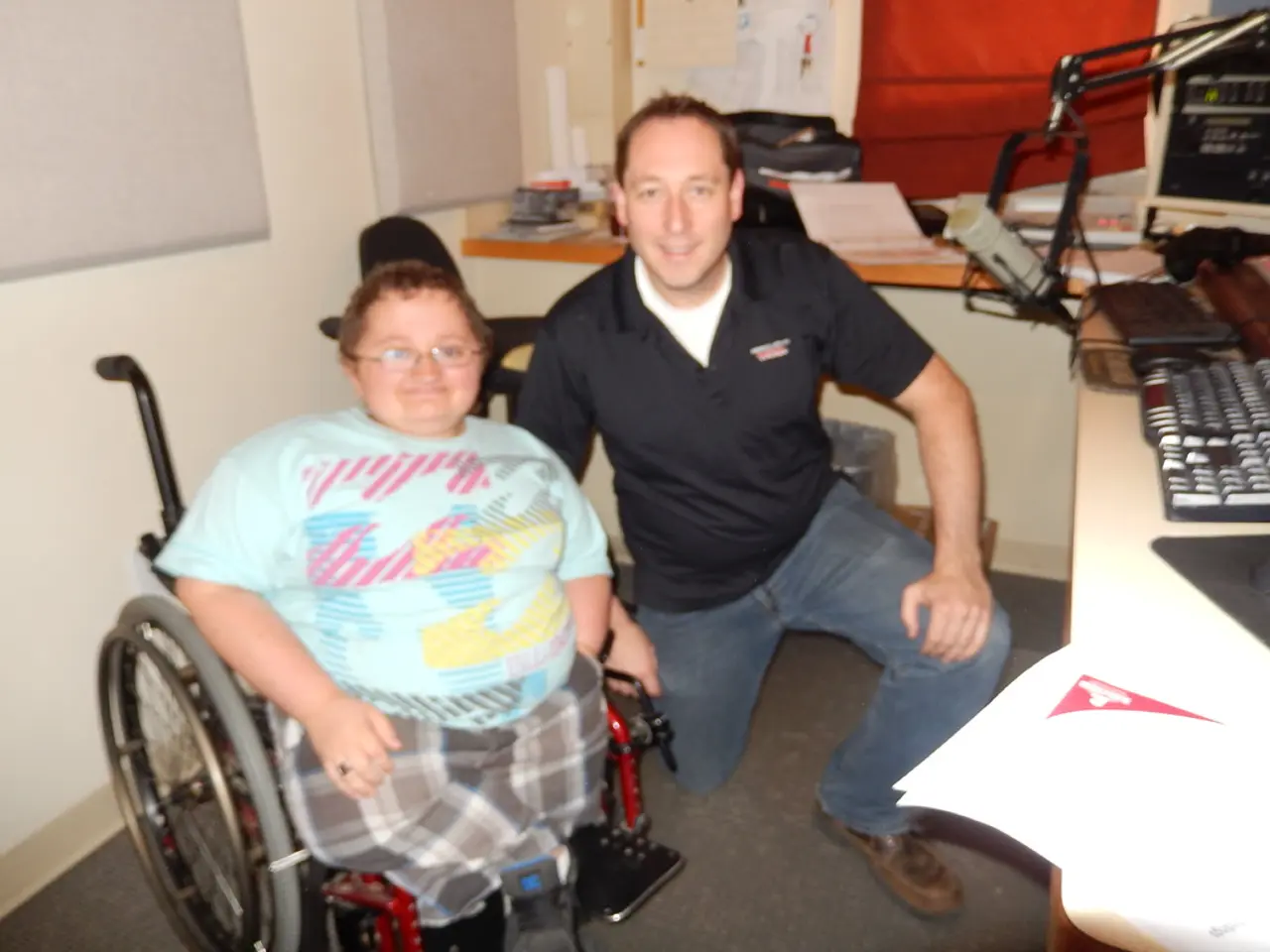Digestive Issues in Parkinson's Disease: Focus on Constipation
In Parkinson's disease (PD), constipation is a common issue that can significantly impact the quality of life for those affected. This condition is primarily caused by slowed colonic transit and impaired defecation mechanics, both of which occur in about two-thirds of PD patients [1].
Constipation in PD can lead to a variety of complications. For instance, it can reduce the bioavailability of levodopa medication, delaying symptom relief [1]. Persistent constipation can also lead to discomfort and secondary health issues, worsening the overall wellbeing of individuals living with PD [5].
Untreated constipation may contribute to dehydration, confusion, balance problems, and kidney issues, as Parkinson's patients often have a diminished thirst response [5]. It can also cause bladder involvement, leading to urinary incontinence and an increased risk of urinary tract infections. Moreover, constipation can reduce appetite and fluid intake, further exacerbating the problem [1].
To manage and prevent constipation in PD, a careful balance of hydration, diet, medical evaluation, and symptom monitoring is required. Adequate hydration, ideally 6-8 glasses of water daily, is crucial to aid medication absorption, improve constipation, and support overall health [5].
Dietary fiber should be managed carefully, as simply increasing fiber as in other populations may cause problems in PD. It's important to monitor bowel movements to aim for at least one per day [5]. Warm drinks in the morning and prune juice can aid in the management of constipation. However, limiting intake of alcohol, energy drinks, tea, coffee, and fizzy drinks is advised, as they can increase the risk of constipation [1].
Addressing gut motility and bacterial imbalances may help reduce gastrointestinal symptoms and inflammation. This could involve medical and dietary interventions such as an anti-inflammatory diet [2]. Comprehensive assessment and treatment by health professionals, including neurologists and gastroenterologists, are essential to tailor therapy aimed at both constipation and optimizing PD medication effectiveness [1][5].
In summary, managing constipation in PD requires a holistic approach that considers hydration, diet, medical evaluation, and symptom monitoring. By doing so, we can prevent complications and support effective PD treatment [1][2][5].
- In addition to PD's primary symptoms, chronic conditions like chronic kidney disease and respiratory conditions can also arise, potentially requiring therapies and treatments for management.
- Maintaining workplace-wellness is crucial for Parkinson's patients, where mental health, fitness-and-exercise, skin-care, and nutrition play vital roles in overall health and wellness.
- CBD, a popular natural treatment, has shown potential in the management of various medical conditions, including inflammation and chronic diseases.
- To improve digestive health and reduce the risk of constipation, it's recommended to avoid alcohol, energy drinks, tea, coffee, and fizzy drinks, and instead consume adequate hydration and warm drinks in the morning, with prune juice when needed.
- Beyondconstipation, addressing mental-health issues is essential in managing Parkinson's disease, as a holistic approach is required for the comprehensive care of patients.
- In the context of PD, nutritional considerations extend beyond constipation management, as appropriate fiber intake and monitoring bowel movements are essential for promoting regularity and maintaining digestive health.
- In integrating therapies-and-treatments for chronic kidney disease, respiratory conditions, and digestive health, alongside PD medications, collaboration between neurologists, gastroenterologists, and other health professionals is crucial for achieving effective management and treatment.




